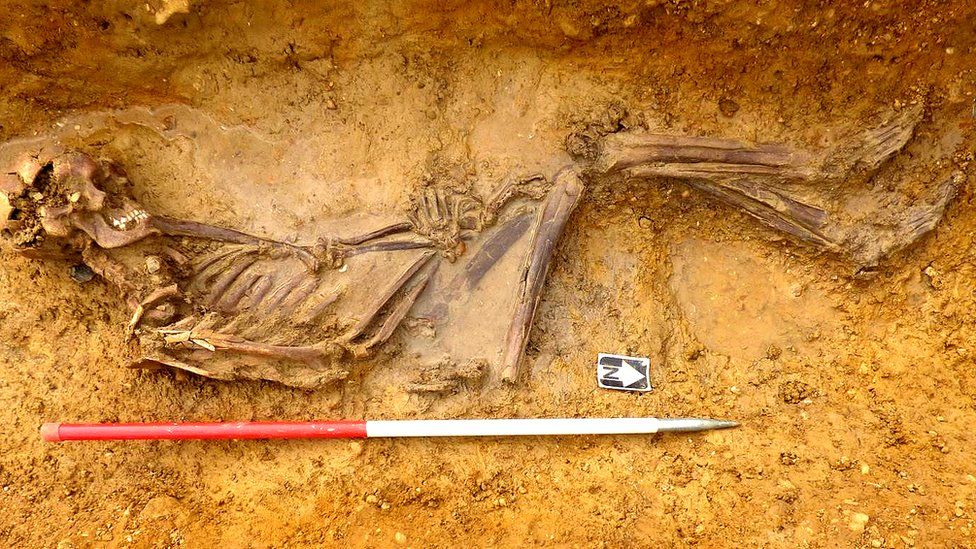-

-
-
Loading

Loading

DNA analysis has revealed the story of a young man who lived 2,000 years ago and ended up in the English countryside. The skeleton, discovered during road excavations in Cambridgeshire, belonged to a member of the Sarmatian nomadic group, providing biological proof that they traveled to Britain from the furthest parts of the Roman Empire. The individual, known as Offord Cluny 203645, was buried alone with no personal belongings, making it difficult to determine his identity. However, scientists were able to extract and decode his ancient DNA from a bone fragment found in his inner ear. The analysis showed that Offord had a distinctly different genetic profile from other Romano-British individuals. By examining his fossilized teeth, researchers also discovered that he initially consumed millets and sorghum grains, common in the region where the Sarmatians lived, but later switched to a diet of wheat found in western Europe. Historical records suggest that Offord may have been the son or slave of a Sarmatian cavalryman who was part of the Roman army posted in Britain during that time. This research highlights the movement of people in both urban and rural areas during the Roman period, and demonstrates the transformative power of DNA analysis in understanding ancient history.